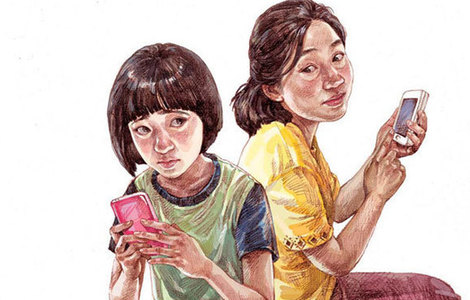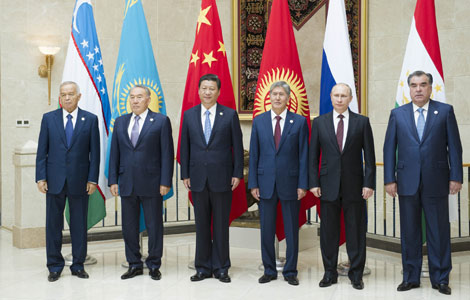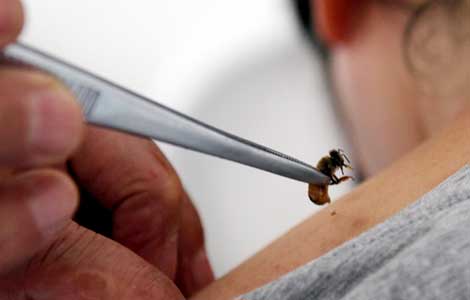Four men given death sentences in Indian gang rape
Updated: 2013-09-15 09:19
(Agencies)
|
||||||||
If India's chaotic judicial system is supposed to be independent of politics, Singh, the defense lawyer, saw a political hand in the judge's decision.
"The judge has given the death sentence under political pressure," he said. "The punishment has been given at the government's insistence. ''
Many have expressed hope that the case, and the intense media coverage, will help change traditional attitudes that relegate women to subservient roles and contribute to a landscape of sexual harassment and fear. Women learn from girlhood to dress conservatively and avoid going out after dark. They teach themselves to ignore the rampant groping and lewd comments - locally known as "eve-teasing" - they encounter in public.
Rapes are regularly blamed on the victims. Many rape victims are shunned by their families, fired from jobs and driven from their home villages. As a result, most rape victims are still thought to remain silent.
"Too often the pressure is on the girls to stay safe. But parents need to take responsibility for their sons," said protester Satvinder Kaur, a 40-year-old mother. "The culture will only change when mothers stop their sons from going out late at night, when they make it clear they will not stand behind them if they do something like this."
Kaur said the sentence sent "a very positive message to the ladies in India that the government is standing behind them."
Faced with the outcry, the government in March created fast-track courts for rape cases, doubled prison terms for rape and criminalized voyeurism, stalking and the trafficking of women.
The dozens of protesters outside the courthouse on Friday, while lauding the sentence, called for swift justice in tens of thousands of rape cases that remain backlogged in Indian courts.
An estimated 100 and 150 people are sentenced to death in India in most years, but the vast majority of those cases are eventually commuted to life in prison.
The defendants, like the rape victim, lived on the bottom rungs of India's booming economy. Nearly all came from families that had moved to New Delhi in recent years from desperately poor rural villages, hoping to find well-paying jobs in the capital. Few had such luck.
One, Mukesh Singh, occasionally drove the bus where the crime occurred and cleaned it. Sharma, the gym assistant, was the only one of the attackers to graduate from high school. Akshay Thakur, 28, occasionally worked as a driver's helper on the bus. Pawan Gupta, 19, worked in a streetside fruit stall.
With them on the bus were two other men. Police say Ram Singh, 33, hanged himself in prison, though his family insists he was killed. Another man - an 18-year-old who was a juvenile at the time of the attack and cannot be identified under Indian law - was convicted in August and will serve the maximum sentence he faced, three years in a reform home.
The young woman, though, was trying to escape the economic mire she had been born into. Her father supported five people - his wife, the woman and two younger sons - on a little over $200 a month working as an airport baggage handler.
But while women remain second-class citizens in most Indian families, expected to stay home and care for their parents and then their husbands, her parents and brothers had supported her as she worked for an education, even breaking with tradition by helping her leave her home for a time to study physiotherapy.
At the time of the attack, she was awaiting exam results for a physiotherapy degree. The results came after her death. She had passed.

 China urges release of detained cruise liner
China urges release of detained cruise liner
 Japan launches rocket Epsilon from Kagoshima
Japan launches rocket Epsilon from Kagoshima
 Family networks
Family networks
 Faye Wong announces her divorce
Faye Wong announces her divorce
 Beijing backs truce bid in Syria
Beijing backs truce bid in Syria
 Parents support stricter rules on children's books
Parents support stricter rules on children's books
 Ouch ... bee therapy causes a real buzz
Ouch ... bee therapy causes a real buzz
 Faye Wong and Li Yapeng shock fans with divorce
Faye Wong and Li Yapeng shock fans with divorce
Most Viewed
Editor's Picks

|

|

|

|

|

|
Today's Top News
Japan launches rocket Epsilon from Kagoshima
Chinese Kungfu kicks off New York Mets
US, Russia agree on Syrian chemical weapons
Senior Party official stresses ecological progress
Interest rate liberalization on way
China's top political advisor meets Vanuatu PM
Retrial of Egypt's Mubarak postponed
Four men get death in gang rape
US Weekly

|

|






